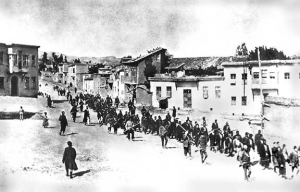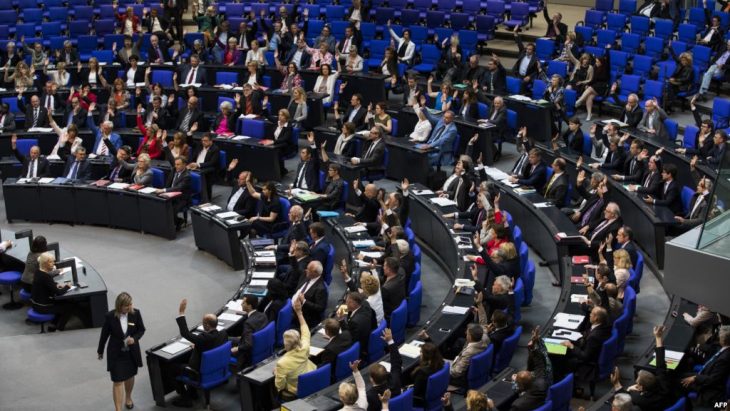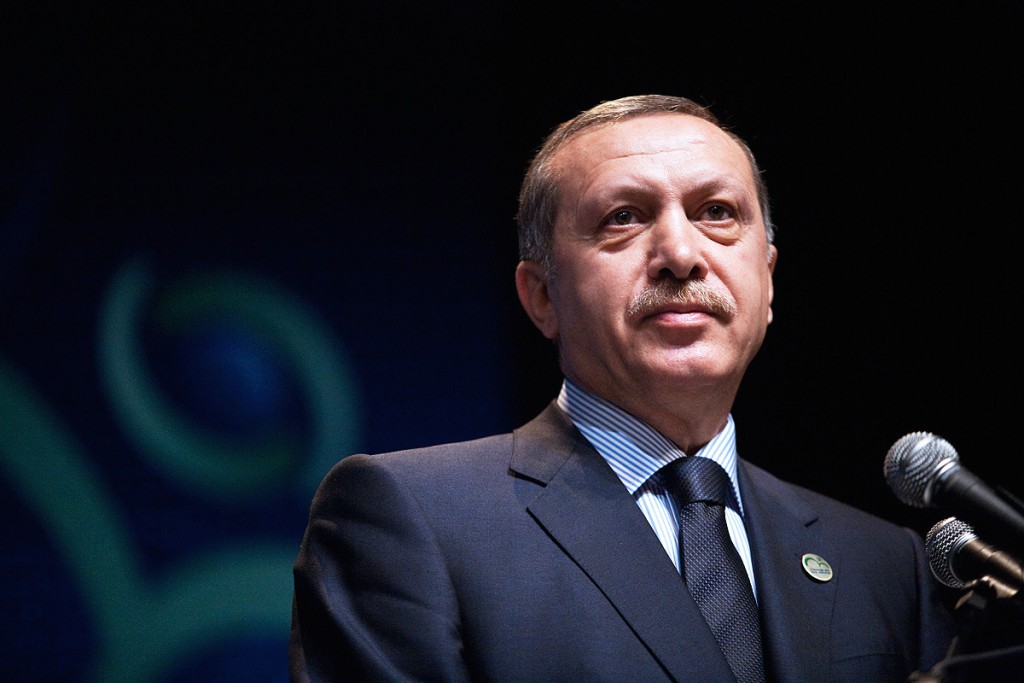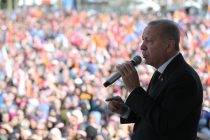Eleven German MPs of Turkish heritage have been given police protection after they received death threats for supporting a Parliamentary resolution calling the deaths of Armenians in Ottoman Turkey as “genocide”. The motion was passed in the Bundestag on June 2.
The German Parliament’s decision has outraged the Turkish government and public, who reject the term “genocide”. Turkey also disputes the claim that 1.5 million Armenians were killed.
Why Turkey rejects ‘genocide’ claims
Turks argue that there was no systematic effort to exterminate Turkish Armenians, but a collective tragedy in which hundreds of thousands of Turks and Armenians died between 1914 and 1918.
During the outbreak of the First World War (WWI), many Armenians joined forces with Britain, France and Russia who had invaded Anatolia intending to defeat the German-allied Turks and carve up the ailing Ottoman Empire. The Ottoman authorities took measures against those opposing government orders as part of the national defence.

In April 1915, they ordered the arrest of Armenian intellectuals they believed were inciting armed revolt. The following month, they passed the Tehcir (deportation) Law, which forcibly moved a large proportion of Armenians away from the war front lines and passed an addition law in the autumn to confiscate their property.
Hundreds of thousands of Armenians perished on what became known as “death marches”: some died from starvation and disease, others as a result of brutal attacks by Turkish and Kurdish gangs. These were said to be in retaliation for massacres of Turkish and Kurdish villagers in Eastern Anatolia by Russian and Armenian forces.
Turkish and many neutral historians around the world agree the policies were inhumane according to today’s standards. However, they argue, there is no evidence that the Ottomans intended to annihilate Armenians, which would merit the legal term “genocide”. Armenians vehemently disagree.
Bettina Kudla: ‘it’s not the duty of the Federal Parliament to evaluate historical events’
Intense lobbying by Yerevan and the Armenian Diaspora has led to various states in Europe and Latin America recognising the events of 1915 as ‘genocide’, among them Belgium, Chile, France, Greece, Italy, Russia, Paraguay, South Cyprus and Sweden.
Germany becomes the 29th country to do so; a bizarre move given it was responsible for the Turkish army during WWI and therefore had a direct hand in the events of that time.

Bettina Kudla, from Chancellor Angela Merkel’s Christian Democratic Union (CDU), was the only MP to vote against the motion. She explained why in a statement posted on her website:
“It’s not the duty of the Federal Parliament to evaluate historical events that took place in other countries. In the resolution presented to parliament, there was also no assessment from historians showing that this was genocide.”
Backlash against German-Turkish MPs
Germany, whose population includes 3 million ethnic Turks, had previously resisted calls to pass a symbolic motion. Eyebrows were raised when it was discovered that Cem Özdemir, the co-leader of Germany’s opposition Green Party, was one of the drivers behind the June resolution: a decade ago he had spoken out against the genocide claims.

Özdemir and MPs from Germany’s coalition government joined forces to submit the resolution, called the “Remembrance and commemoration of the genocide of Armenians and other Christian minorities in 1915 and 1916”, which carries contentious wording throughout.
Only one in five of the Bundestag’s 630 MPs attended the vote. Of these, Kudla voted against, Oliver Wittke abstained, and all other MPs present voted in favour of it, including 11 MPs of Turkish heritage.
The 11 have since faced a serious backlash from the Turkish government and public, and Germany’s large Turkish community, who have denounced their actions. Among these was Berlin’s Turkish Congregation. Its President Bekir Yılmaz said “we vehemently reject [this motion]. There has never been genocide in Turkish history. The place to debate this is via historical archives not in parliament.”

Dr. Mehmet Toy, President of the Assembly of Turkish American Associations, also slammed the vote, stating, “The most painful aspect is those whose MPs names and origins are allegedly Turkish yet have stabbed the Turkish nation in the back [with this vote].”
Retired teacher Rasim Canpolat, a family friend of Tokat-born German MP Ekin Deligöz, told reporters, “We didn’t like her behaviour, we don’t approve of it. We are saddened by the ‘yes’ vote by Turkish origin German MPs and condemn it.”
Similar comments were made across Turkey, with three of the four major parties – AKP, CHP and MHP – issuing a joint statement condemning the German Parliament’s decision.
President Erdoğan asks if German-Turkish MPs’ are ‘impure’
Some of the criticisms levelled at the Turkish-origin MPs however, were regarded as beyond the pale, including those by Recep Tayyip Erdoğan.
Last Sunday, the Turkish President asked: “What sort of Turks are they?” He added that, “their blood is impure”, calling them “the long arm of the separatist terrorists placed in Germany.”
Previous recipients of such a vicious tongue-lashing from the Turkish President have found themselves also targeted by his fanatical followers.
Özdemir told a newspaper he had received emails that said things like: “We will find you anywhere.” His friends in Turkey had advised him to take the threats seriously.

All Turkish-origin MPs are now under police protection and Germany’s Foreign Ministry has warned them against travelling to Turkey, saying their security there could not be guaranteed.
On Thursday, Norbert Lammert, the President of the Bundestag, denounced President Erdoğan’s attacks on German MPs with Turkish backgrounds. Lammert said:
“I did not think it possible, in the 21st century, that a democratically elected president would link his criticism of democratically elected MPs in the German Bundestag to doubts over their Turkish origins, or that he would describe their blood as spoiled.”
Main picture: genocide bill co-sponsor Cem Özdemir (left) and fellow German-Turkish MP Ekin Deligöz





